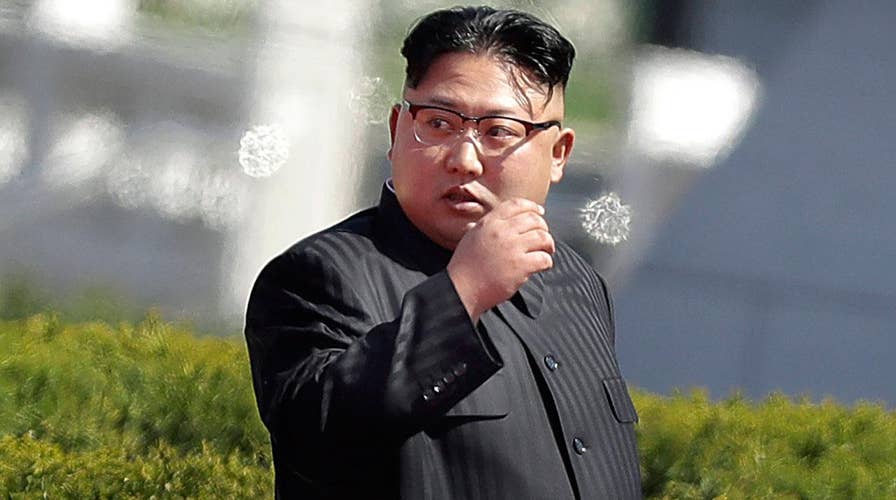North Korea unleashing new threats against US
Can the crises be brought back from the brink? 'The O'Reilly Factor' investigates
North Korea is a conundrum: seemingly barren and with Third World living conditions, yet it just held a grandiose military parade reminding the world that the country is locked and loaded.
As detached as North Korea appears to be from the rest of the globe, the country is maintaining a stream of revenue from somewhere to finance its impressive slew of intercontinental ballistic missiles. Where does that money come from? A myriad of places.
“North Korea has both an overt and covert economy through which it gains money,” said Bruce Klingner, a Heritage Foundation senior fellow who suggests North Korea’s money flow is very diverse.
“The overt economy is predominantly sales of natural resources,” he said. “The covert economy is harder to estimate, but consists of weapons sales, the counterfeiting of U.S. $100 bills . . . production and distribution of illegal narcotics, cigarettes and pharmaceuticals, including Viagra, insurance scams, money laundering, and cybercrime.”
According to Klingner, that laundry list of dubious activities extends to “skimming the wages of North Korean workers overseas” and North Korean diplomats “involved in illegal sales of wildlife, rhino horn and ivory.”
Related stories...
It is nearly impossible to have a dialogue about North Korea’s finances without mentioning China.
“Without China, North Korea would be in a state of collapse,” explained Nicholas Eberstadt, an American Enterprise Institute scholar and North Korea expert.
“China is the huge and dominant actor in exports and imports for North Korea. North Korea’s main activities include developing weapons of mass destruction so China supports that, of course.”
Along with illicit activities such as counterfeiting and drug sales, Eberstadt suggested another possible point of supply.
“Other things we don’t follow terribly well are overseas sources of wealth that belong to the Kim family stashed in Macau and other places,” he said.









































